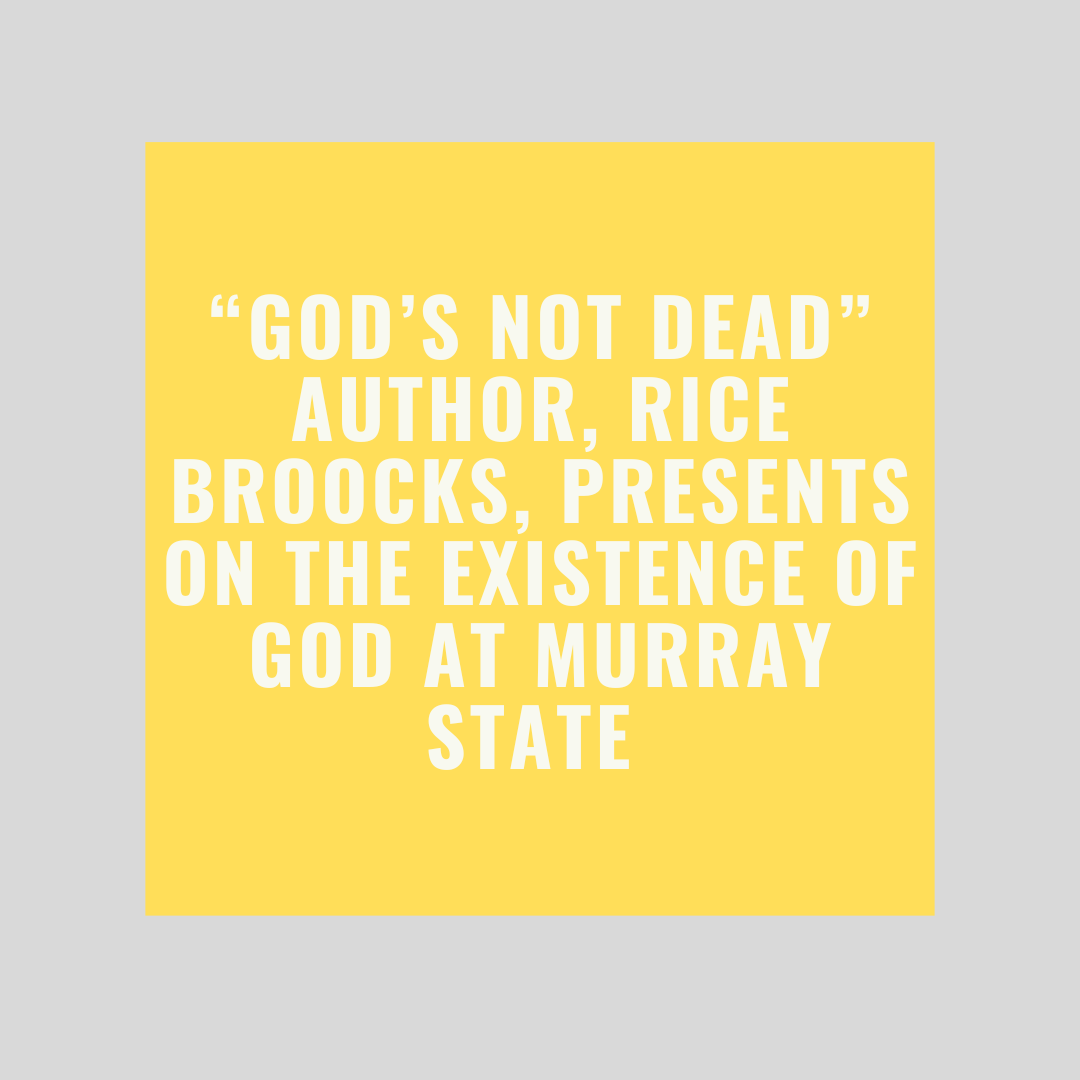
Jill Smith
Rice Broocks gave a lecture concerning the evidence revealed in his book.
Evidence presented at the “God’s Not Dead” lecture last Tuesday explored the argument that the universe came from something rather than nothing.
Rice Broocks, author of “God’s Not Dead: Evidence for God in an Age of Uncertainty,” gave a lecture concerning the evidence revealed in his book in hopes of proving the existence of God as creator.
He was accompanied by Ming Wang, who is known for his innovative research in laser vision therapy and cornea treatment. Eric Hedin, physicist and author, offered his scientific perspective on the technicalities of origins of the universe.
It was a large turnout, with over 400 people attending the lecture.
Broocks began the lecture with a question: “Why is there something rather than nothing?”
This question was his premise for the entire lecture. He argued that the belief of nothing turning into something is more abstract than believing in a creator such as God.
“It is not possible to claim anything in physics is based upon truth,” Hedin said. “There is no such thing that is 100% proof of anything.”
Hedin argued there are always unprovable assumptions which are the foundation of established scientific theories, making it easier to deconstruct ideas like the Big Bang.
“We might be based on something more than a reaction of atoms,” he said.
Broocks said believers of God and science must coexist, and the use of science within a Christian mindset is necessary to understand the universe.
Wang said the chance for trillions of eye cells to align perfectly during a nine-month pregnancy period is zero.
“I knew it wasn’t possible for an eye to form randomly,” he said.
For Wang, this was his evidence for God.
Broocks argued that believing in God as the creator of the universe begins with believing in an intelligent creation.
“Information always points to intelligence,” he said.
Broocks said genetic information is too precise and complex to have been created by an accidental collision of atoms.
Towards the end of the lecture, the focus shifted from scientific evidence to moral and spiritual evidence of God.
Broocks addressed the common argument from skeptics that a good God wouldn’t put evil into the world, therefore making the existence of God far-fetched.
“If there is no God, there is no evil,” he said. “The only way to explain evil is from God’s goodness.”
Broocks argued evil is prevalent because there is a moral law pressed against humanity that originated from the pure goodness of God. He said without God’s goodness, evil would not exist.
“If we are just animals, murder isn’t a crime scene; it’s a Geico commercial—it’s just what animals do,” he said. “But we know there is something greater.”